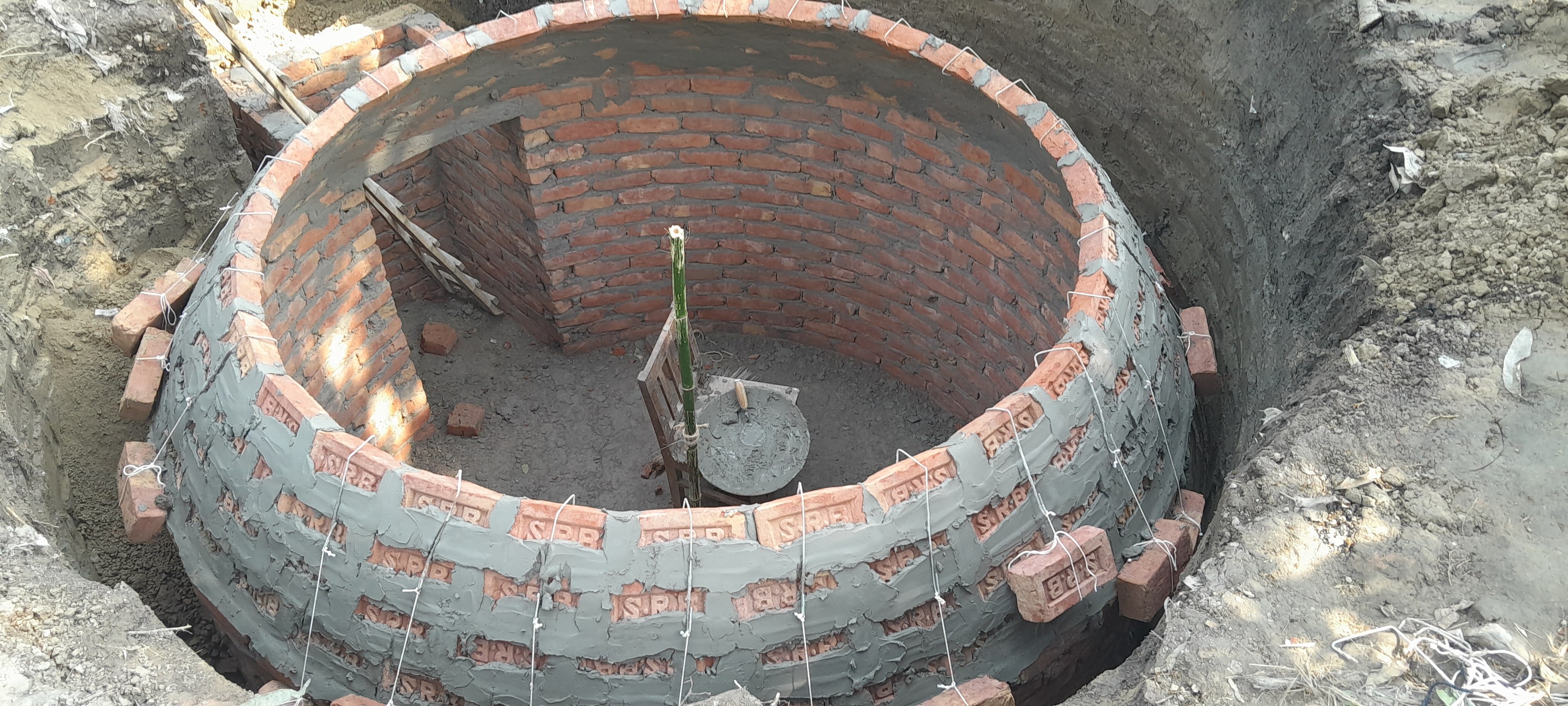Increasing the use of renewable energy, producing biogas and electricity. Expect to convert at least 2 villages to full renewable energy use in the next 2 years.
SEECTO Bangladesh

SEECTO Bangladesh.
Right now, SEECTO Bangladesh is working in 5 districts of Bangladesh. Kushtia district currently has 300+ registered members and 200+ volunteers. Currently working on youth skill development and a long time to ensure climate justice and advocacy. Also, it has been doing various activities as a model for using renewable energy by stopping the investment of fossil fuel. Apart from this, they also started developing some models with renewable energy as a part of “Kushtia Green New Deal Hub.” Following this, SEECTO Bangladesh first set up a biogas plant capable of meeting the needs of a single household. While solar panels are best known for renewable energy, the SEECTO team feels there is ample opportunity and demand for a biogas plant in Kushtia. Biogas plants not only play a role in renewable energy but can also provide fertilizer in waste management and agriculture.
Young people of the SEECTO Bangladesh Kushtia district team are leading the project. A 3.8 cubic meter plant requires 70 kg of dung, efficiently supplying 4/5 of houses with uninterrupted gas. At the same time, if an entire village is to do eco-friendly agriculture without using renewable energy and chemical fertilizers, it is enough to have two cows for each household. Suppose you spend 30-35 thousand takas once with two cow dung. This solution can last for at least ten years. It also links the field of environmentally friendly labor while impacting climate change mitigation. In this, the youth will learn more about the circular economy model. We are optimistic that with the support of like-minded organizations, these young people of “SEECTO Bangladesh” will be able to build an ideal eco-friendly, fuel-rich village.
Draft Plan for this type of village, we count 50 houses in one village & Twelve (12) 3.8 cubic meter plant for each village cost seven (7) lakhs Taka (without any payment for those members they lead this project). We collect eight (8) hundred taka for each house for 50 houses and 40 thousand takas. So, in just 1.5 years we will collect all the money invested in this project.
We have strong evidence for this initiative. Because we have already managed one successful plant of 2.00 cubic meters and completed our second plant of 3.8 cubic meters, which will supply gas to 4-5 houses, at the same time, we will give a gas supply to the house's number of (4-5) kitchens, depending on using hours. from where we can use the bill to get new initiatives for the youth group. All 18-35 age youth can joint SEECTO's and to be Join SEECTO it’s some simple membership criteria. Md Mahabul Alam Tamim founded SEECTO Bangladesh since 5th Dec 2020 from Kushtia Zilla.
Biogas plants have been operated in different parts of the country using natural methods for many years. Although we all have a strong understanding of this issue and these biogas plants are set up with government assistance in various places, there has yet to be any legal complication. The youth of SEECTO Bangladesh decided that Biogas plants are already operational but have yet to be promoted or expanded. As a “SEECTO Bangladesh,” the Green New Deal Hub is working to encourage the use of renewable energy among marginalized people from Kushtia. From there, the youth felt this biogas plant was the easiest and most effective way. About 90-100 kg of dung is required for every five houses, which can be obtained from 8-10 cows, and the cost of setting up this plant is Rs 45-50 thousand. This cost is also incurred as a one-time expense. Various government assistance is available for setting up this plant.
The SEECTO Bangladesh initiative aims to scale up the use of biogas plants and promote renewable energy solutions. The initiative can achieve this by providing training, mentorship, and networks to support the growth of communities of practice. It can also advocate for policy, planning, and legislation that invests in renewable energy solutions and engages with local, regional, and national governments to promote the benefits of biogas plants. Additionally, the initiative can replicate the model in other contexts, partner with private sector actors, and leverage existing networks and platforms to share knowledge and promote renewable energy.
While this solution impacts climate change prevention, it also connects the field of environmentally friendly labor. In this, the youth will learn more about the circular economy model. With the support of like-minded organizations, these young people of wet Bangladesh can build an ideal eco-friendly, energy-rich village. Our current plan is to convert at least two villages into renewable energy-powered plants and spread them out gradually.

